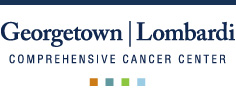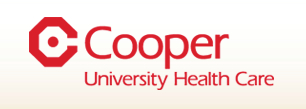Peripheral Stem Cell Transplant in Treating Patients With Multiple Myeloma
| Status: | Completed |
|---|---|
| Conditions: | Cancer, Blood Cancer, Hematology, Hematology |
| Therapuetic Areas: | Hematology, Oncology |
| Healthy: | No |
| Age Range: | Any - 64 |
| Updated: | 4/21/2016 |
| Start Date: | November 2001 |
| End Date: | February 2010 |
Autologous Followed By Non-Myeloablative Allogeneic Transplant For Multiple Myeloma
RATIONALE: Peripheral blood stem cell transplant using stem cells from the patient or a
donor may be able to replace immune cells that were destroyed by chemotherapy used to kill
tumor cells. The donated stem cells may also help destroy any remaining cancer cells
(graft-versus-tumor effect).
PURPOSE: This phase II trial is studying how well autologous peripheral stem cell transplant
followed by donor peripheral stem cell transplant works in treating patients with multiple
myeloma.
donor may be able to replace immune cells that were destroyed by chemotherapy used to kill
tumor cells. The donated stem cells may also help destroy any remaining cancer cells
(graft-versus-tumor effect).
PURPOSE: This phase II trial is studying how well autologous peripheral stem cell transplant
followed by donor peripheral stem cell transplant works in treating patients with multiple
myeloma.
OBJECTIVES:
- Determine whether autologous peripheral blood stem cell transplantation (PBSCT)
followed by non-myeloablative allogeneic PBSCT is associated with no more than 20%
treatment-related mortality rates at 6 months in patients with multiple myeloma.
- Determine the response rate of patients treated with this regimen.
- Determine the percent donor chimerism in patients treated with this regimen.
- Determine the rate of graft-vs-host disease in patients treated with this regimen.
- Determine the toxic effects of this regimen in these patients.
- Determine the disease-free and overall survival of patients treated with this regimen.
- Determine whether abnormal cytogenetics at presentation correlate with poor response in
patients treated with this regimen.
OUTLINE: This is a multicenter study.
Patients receive cyclophosphamide IV over 1-2 hours on day 1 and filgrastim (G-CSF)
subcutaneously (SC) beginning on day 5 and continuing until peripheral blood stem cell
(PBSC) collection is complete.
Approximately 2-4 weeks after PBSC collection, patients receive melphalan IV over 15-30
minutes on day -2. Patients then undergo autologous PBSC transplantation (PBSCT) on day 0.
Patients receive G-CSF SC beginning on day 5 and continuing until blood counts recover.
Approximately 2-4 months after autologous PBSCT, patients receive fludarabine IV over 30
minutes on days -7 to -3 and cyclophosphamide IV over 1 hour on days -4 to -3. Patients
undergo allogeneic PBSCT on day 0. Patients receive G-CSF SC beginning on day 7 and
continuing until blood counts recover.
Patients receive graft-vs-host disease (GVHD) prophylaxis comprising oral tacrolimus twice
daily on days -1 to 90 followed by a taper on days 91-150 and methotrexate IV on days 1, 3,
and 6.
After day 120, patients with stable or progressive disease and no evidence of active GVHD
may receive donor lymphocyte infusion (DLI) over 2 hours. Patients may receive up to 3 DLIs
every 8 weeks.
Patients are followed every 3 months for 3 years, every 6 months for 5 years, and then
annually for 15 years.
PROJECTED ACCRUAL: A maximum of 63 patients will be accrued for this study.
- Determine whether autologous peripheral blood stem cell transplantation (PBSCT)
followed by non-myeloablative allogeneic PBSCT is associated with no more than 20%
treatment-related mortality rates at 6 months in patients with multiple myeloma.
- Determine the response rate of patients treated with this regimen.
- Determine the percent donor chimerism in patients treated with this regimen.
- Determine the rate of graft-vs-host disease in patients treated with this regimen.
- Determine the toxic effects of this regimen in these patients.
- Determine the disease-free and overall survival of patients treated with this regimen.
- Determine whether abnormal cytogenetics at presentation correlate with poor response in
patients treated with this regimen.
OUTLINE: This is a multicenter study.
Patients receive cyclophosphamide IV over 1-2 hours on day 1 and filgrastim (G-CSF)
subcutaneously (SC) beginning on day 5 and continuing until peripheral blood stem cell
(PBSC) collection is complete.
Approximately 2-4 weeks after PBSC collection, patients receive melphalan IV over 15-30
minutes on day -2. Patients then undergo autologous PBSC transplantation (PBSCT) on day 0.
Patients receive G-CSF SC beginning on day 5 and continuing until blood counts recover.
Approximately 2-4 months after autologous PBSCT, patients receive fludarabine IV over 30
minutes on days -7 to -3 and cyclophosphamide IV over 1 hour on days -4 to -3. Patients
undergo allogeneic PBSCT on day 0. Patients receive G-CSF SC beginning on day 7 and
continuing until blood counts recover.
Patients receive graft-vs-host disease (GVHD) prophylaxis comprising oral tacrolimus twice
daily on days -1 to 90 followed by a taper on days 91-150 and methotrexate IV on days 1, 3,
and 6.
After day 120, patients with stable or progressive disease and no evidence of active GVHD
may receive donor lymphocyte infusion (DLI) over 2 hours. Patients may receive up to 3 DLIs
every 8 weeks.
Patients are followed every 3 months for 3 years, every 6 months for 5 years, and then
annually for 15 years.
PROJECTED ACCRUAL: A maximum of 63 patients will be accrued for this study.
DISEASE CHARACTERISTICS:
- Diagnosis of active multiple myeloma that requires treatment
- Durie-Salmon stage I, II, and III
- No more than 1 progression after initial therapy
- Must have HLA-identical sibling donor (6/6) by serologic typing (A, B, DR)
- No syngeneic donors
- Must also be enrolled on protocol CLB-8461 (Cytogenetic Studies in Acute Leukemia)
PATIENT CHARACTERISTICS:
Age:
- Under 65
Performance status:
- NCI CTC 0-1
Life expectancy:
- Not specified
Hematopoietic:
- Absolute neutrophil count greater than 500/mm^3
- Platelet count greater than 50,000/mm^3
Hepatic:
- Bilirubin less than 2 mg/dL
- AST less than 3 times upper limit of normal (ULN)
- Alkaline phosphatase less than 3 times ULN
Renal:
- Creatinine less than 2 mg/dL
- Creatinine clearance greater than 40 mL/min
Cardiovascular:
- LVEF at least 30% by MUGA scan
Pulmonary:
- DLCO greater than 40% of predicted
- No symptomatic pulmonary disease
Other:
- HIV negative
- No uncontrolled diabetes mellitus
- No active serious infection
- Not pregnant or nursing
- Negative pregnancy test
- Fertile patients must use effective contraception
PRIOR CONCURRENT THERAPY:
Biologic therapy:
- Not specified
Chemotherapy:
- At least 4 weeks since prior chemotherapy
- Prior alkylating-agent therapy allowed if no more than 12 months duration
Endocrine therapy:
- Not specified
Radiotherapy:
- At least 4 weeks since prior radiotherapy
Surgery:
- At least 4 weeks since prior surgery
Other:
- All prior therapy no more than 18 months duration
We found this trial at
15
sites
3970 Reservoir Rd NW E501
Washington, District of Columbia 20007
Washington, District of Columbia 20007
(202) 687-2110

Lombardi Comprehensive Cancer Center at Georgetown University Medical Center Georgetown Lombardi Comprehensive Cancer Center, part...
Click here to add this to my saved trials
Roswell Park Cancer Institute Welcome to Roswell Park Cancer Institute (RPCI), America's first cancer center...
Click here to add this to my saved trials
Click here to add this to my saved trials
200 Hawkins Drive
Iowa City, Iowa 52242
Iowa City, Iowa 52242
800-237-1225

Holden Comprehensive Cancer Center at University of Iowa Holden Comprehensive Cancer Center is dedicated to...
Click here to add this to my saved trials
902 Savannah Road
Lewes, Delaware 19958
Lewes, Delaware 19958
(302) 645-3770

Tunnell Cancer Center at Beebe Medical Center The Robert & Eolyne Tunnell Cancer Center at...
Click here to add this to my saved trials
Mount Sinai Med Ctr Founded in 1852, The Mount Sinai Hospital is a 1,171-bed, tertiary-care...
Click here to add this to my saved trials
4800 Friendship Avenue
Pittsburgh, Pennsylvania 15224
Pittsburgh, Pennsylvania 15224
Click here to add this to my saved trials
1600 Divisadero Street
San Francisco, California 94115
San Francisco, California 94115
888.689.8273

UCSF Helen Diller Family Comprehensive Cancer Center UCSF’s long tradition of excellence in cancer research...
Click here to add this to my saved trials
42 E Laurel Rd # 2545
Voorhees, New Jersey 08043
Voorhees, New Jersey 08043
(800) 826-6737

Cancer Institute of New Jersey at Cooper - Voorhees Cooper University Health Care, the clinical...
Click here to add this to my saved trials
1 Medical Center Blvd
Winston-Salem, North Carolina 27103
Winston-Salem, North Carolina 27103
(336) 716-2011

Wake Forest University Comprehensive Cancer Center Our newly expanded Comprehensive Cancer Center is the region’s...
Click here to add this to my saved trials
101 Manning Drive
Chapel Hill, North Carolina 27514
Chapel Hill, North Carolina 27514
(919) 966-0000

Lineberger Comprehensive Cancer Center at University of North Carolina - Chapel Hill One of the...
Click here to add this to my saved trials
Click here to add this to my saved trials
300 W 10th Ave
Columbus, Ohio 43210
Columbus, Ohio 43210
(800) 293-5066

Arthur G. James Cancer Hospital and Solove Research Institute at Ohio State University Medical Center...
Click here to add this to my saved trials
4701 Ogletown-Stanton Road
Newark, Delaware 19713
Newark, Delaware 19713
302-623-4450

CCOP - Christiana Care Health Services Christiana Care's Cancer Research Program is part of a...
Click here to add this to my saved trials
Click here to add this to my saved trials

